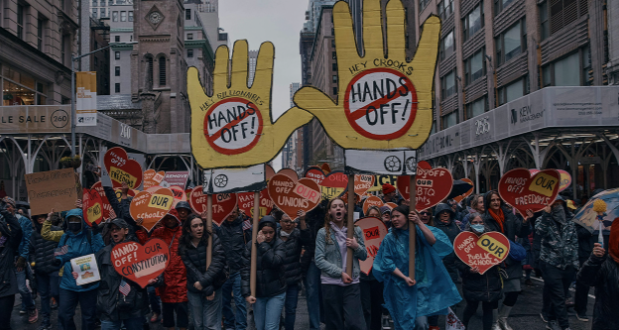On November 1, 2024, jury deliberations began in the case of Daniel Penny, a 24-year-old former marine who was arrested after placing a 30-year-old homeless man, Jordan Neely, in a lethal chokehold. Five days and over 24-hours worth of deliberations later, the jury found Penny not guilty of criminally negligent homicide and dismissed the charges.
The case began on May 1, 2023, when Jordan Neely, a homeless man, was killed after being put in a chokehold by Daniel Penny, a 24-year-old former U.S. Marine. The incident unfolded just after 2p.m. on a northbound F train approaching the Broadway–Lafayette Street station, when Neely entered the same train car as Penny.
Witnesses said that Neely had been shouting at other passengers and asking them for food and water. According to CNN, Juan Alberto Vazquez, a freelance journalist, who happened to catch the encounter on video, said that Neely had frightened other passengers but had not assaulted anyone. However, it was after Neely reportedly “lunged” at other passengers, including a woman with her child, that Penny placed Neely in a chokehold for about six minutes. Eventually, Neely stopped moving. In an extended video clip, bystanders could be heard yelling that Neely was “going to die” yet Penny continued the chokehold.
When police arrived, they administered Narcan and performed CPR; however, Neely could not be saved. His death was ruled a homicide by medical examiners. A police investigation revealed that Neely had a long history of mental-health issues, which began shortly after his mother was murdered in 2007. It was also discovered that Neely was known in the Times Square community as he was a Michael Jackson impersonator who frequently performed there.
Following the incident, protests unfolded in the city, particularly in SoHo, demanding justice for Jordan Neely. Demonstrators took to the streets in hopes that Penny would be arrested. On May 12, Penny turned himself into the police and was charged with second-degree manslaughter and criminally negligent homicide, according to the indictment released by the Manhattan DA’s office. He has since pleaded not guilty and maintained the innocence of his actions. His attorneys argue self-defense.
However, following the ruling on December 9th, Jordan Neely’s father, Andre Zachary, filed a lawsuit against Penny, citing wrongful death. He criticized the jury’s verdict and in a heartbroken press conference stated, “I just want to say, I miss my son, my son didn’t have to go through this, I didn’t have to go through this either, it hurts, really really hurts, what are we going to do people? What’s going to happen to us now?”
The criminalization of the homeless and mentally ill has become widespread beyond New York City. Those who need help the most are commonly turned away or approached with hostility and fear. Rather than addressing homelessness and mental illness, people have become dependent on overwhelmingly oppressive ways that further exclude this group of people from society. Moreover, the city’s shelters are overpopulated, and mental health services are underfunded. This doesn’t leave those in crisis with many options. So, when we revert to violent tactics, such as the chokehold that killed Jordan Neely, we punish vulnerability and illness while furthering the cycle of neglect.
Neely’s death forces us to face the uncomfortable truths that exist in our city. His death is not only one of individual fault but of systematic failure of homeless and poverty-stricken individuals.













